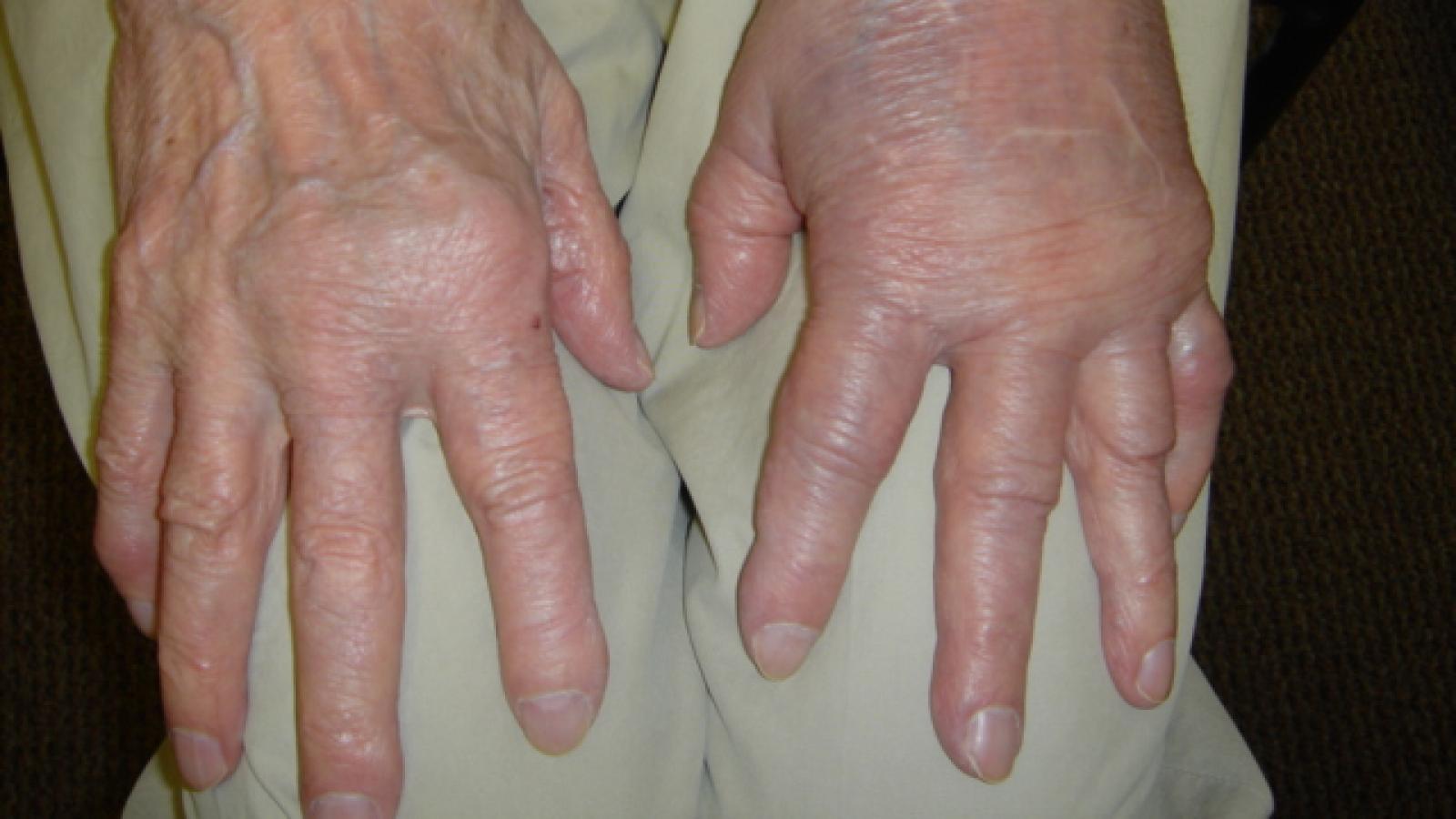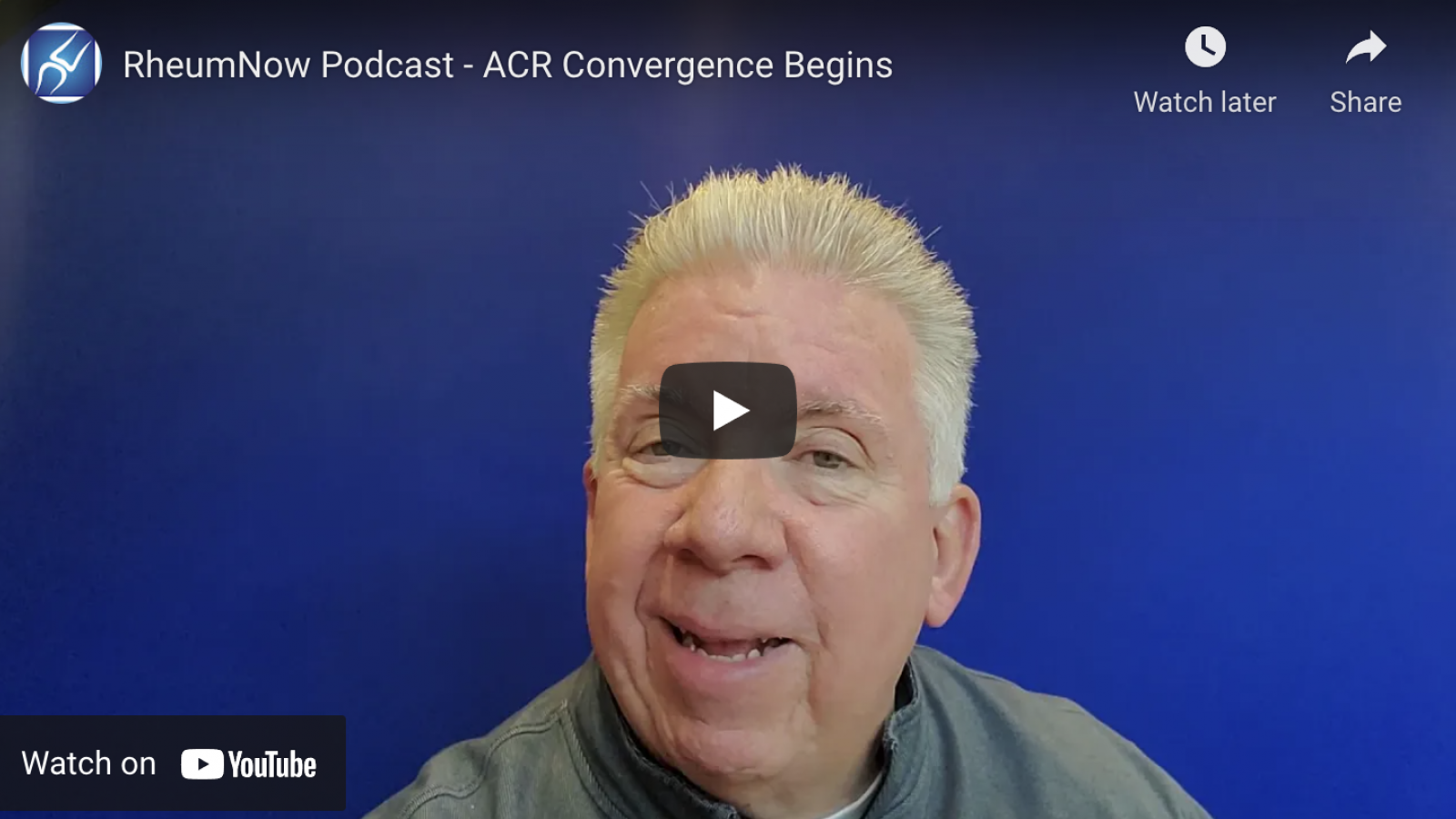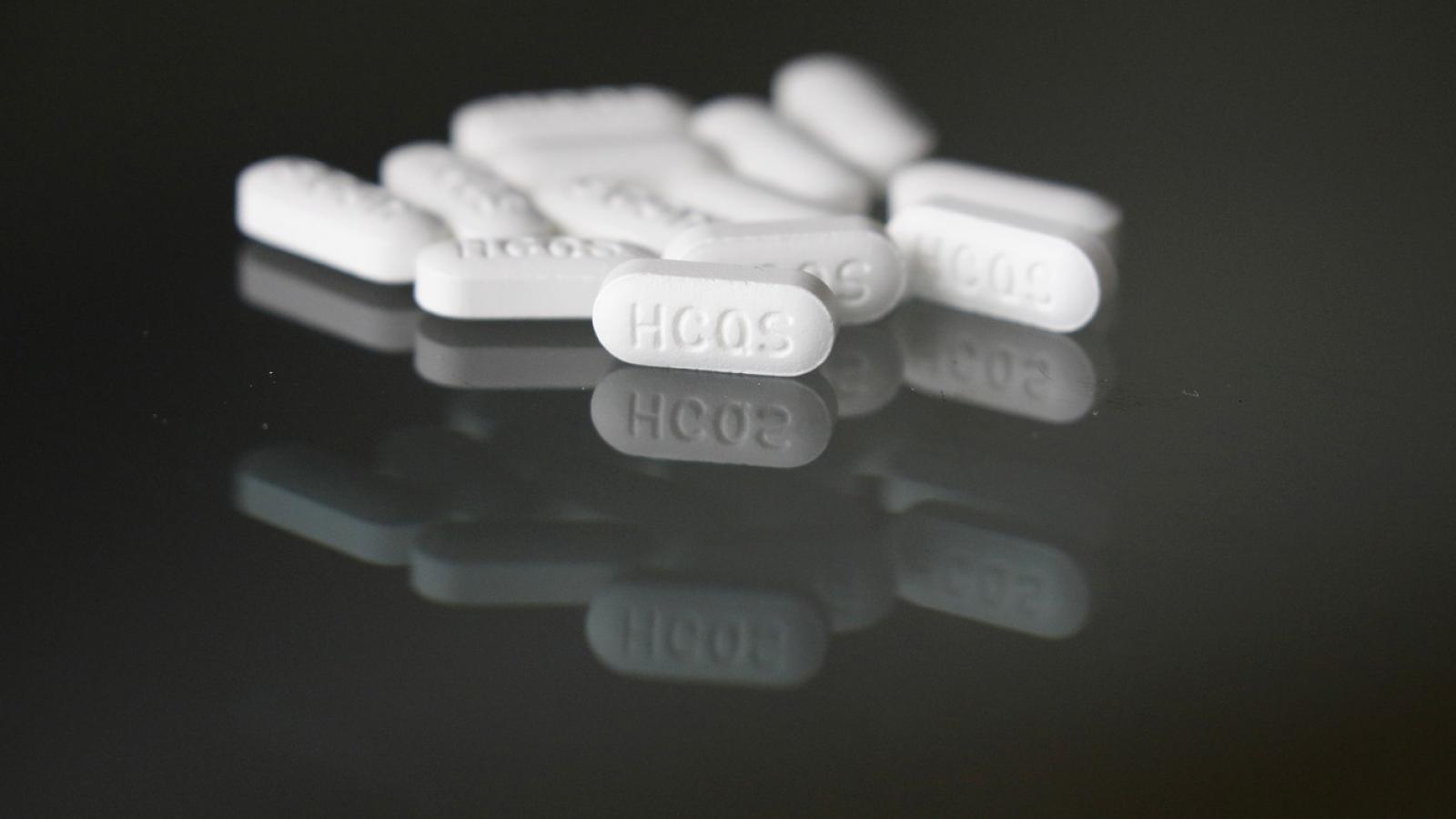Rheumatoid Arthritis
Evidence suggests that RA patients are at increased risk for cognitive impairment. This is likely mediated by certain factors, including chronic inflammation and accelerated atherosclerosis. In the clinical setting, it is important to identify RA patients at increased risk for cognitive impairment.
Should we start considering therapeutic drug monitoring when prescribing TNFi for treatment of our rheumatologic conditions?
The third day of ACR 2021 took a big leap in online content. Here is a compilation (with links) of presentations were the “ACRBest” as seen by our RheumNow faculty.
Methotrexate may be a rheumatologist’s best friend, but a key part of counselling any patient about its use has always been the risk of hepatotoxicity. Despite methotrexate’s near-ubiquitous use in rheumatology, and the consequent frequency of patient counselling about it, relatively little is known about what precautions are absolutely required, a situation which might otherwise provoke anxiety for patients.
In a world where telemedicine and virtual care are not going away, is there value in patients assessing their own tender and swollen joints?
Work from the Canadian Early Arthritis Cohort (CATCH, @earlyarthritis) presented by Dr. Vivian Bykerk (@BykerkVivian) is the subject of two abstracts from Monday’s poster floor, exploring the utility as to how patient assessments might match up to rheumatologist assessments.
Januse kinase (JAK) inhibitors are targeted synthetic disease modifying anti-rheumatic drugs (tsDMARDs) that have risen in popularity as earlier treatment options for rheumatoid arthritis. With multiple JAK inhibitors available in the United States (tofacitinib, baricitinib, and upadacitinib), patients who fail one treatment option have the ability to switch to another agent or change to biologic therapy.
The first full day of Abstracts and Presentations from ACR Convergence, was full of highly engaging sessions, quality posters and unique presentations. To hear more about the best of the best, I would encourage you to look at our Day 1 Recap Video and Day 1 ACR Best Abstracts. Here are a few of my favorites from the first day.
The RheumNow faculty have been glued to their monitors all day, watching video, and running down abstract presentations to find the best – several of these stood out as #ACRBests. Here is a listing of “Best” they saw on Day 1.
In rheumatoid arthritis we have a wide range of options available to us when we progress to a biologic treatment option. We have little to differentiate between these agents based on the clinical trials. We often make our choices based on minor hints from clinical features, comorbidities, or cost considerations.
The opening of ACR2 Convergence was a hit for all who signed up and viewed in. The day included the presidential address by outgoing president Dr. David Karp (UT Southwestern) and a keynote talk and interview with Dr. Seema Yasmin (Stanford).
The Year in Review featured a clinical vs basic science Brigham and Women’s Hospital faceoff between its two faculty, Dr. Karen Costenbader and Dr. Michael Brenner.
Appropriate assessment and management of comorbidities and multimorbidity in patients with RA is vital for overall health and well-being of the patient, as well as to encourage treatment adherence, and address social, psychological and quality of life factors.
Patients with clinically suspect arthralgia can represent a challenge for clinicians, in a sense that there are not yet reliable markers to predict evolution to clinical RA nor enough evidence to support routine prescription of conventional synthetic DMARDS or biologic treatments in this setting.
Patients with rheumatic diseases – requiring lifelong immunosuppressants— are at high risk for respiratory and viral infections. Over the past decade, an armamentarium of biologic and targeted therapies has led to better control of disease activity in patients with rheumatoid arthritis. Whether these patients, especially those receiving newer biological and targeted therapies such as JAK inhibitors, are at an increased risk of severe COVID-19
Dr. Cush reviews the news, and kicks off ACR21 learning and how to take in the annual meeting.
Since the start of the pandemic, hydroxychloroquine (HCQ) was forced into the limelight for the prevention/treatment of COVID-19. When it was found to be ineffective for COVID-19 and might cause potential harm, the drug came under closer scrutiny for its safety profile.



























 Poster Hall
Poster Hall